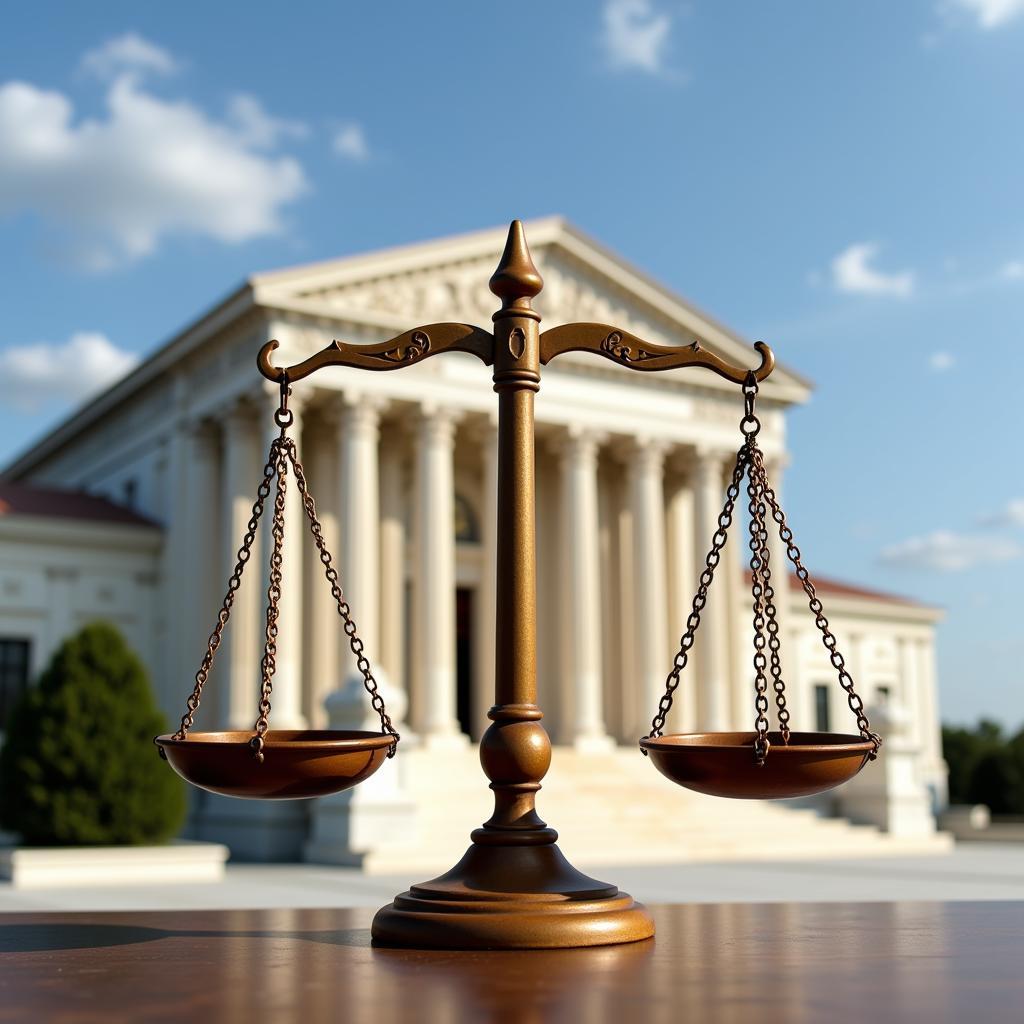The Supreme Court case Christian Legal Society Chapter v. Martinez (2010) addresses the complex intersection of religious freedom, student organization rights, and anti-discrimination policies. This landmark decision explored the delicate balance between allowing religious groups to operate according to their beliefs and ensuring equal access for all students on campus. The case continues to be relevant today, shaping how universities navigate the complexities of inclusivity and religious expression.
Understanding the Christian Legal Society v. Martinez Case
The case originated at the Hastings College of the Law, a public law school in California. The Christian Legal Society (CLS) chapter at Hastings required its members to adhere to a statement of faith, which included a belief in traditional Christian doctrines regarding marriage and sexual conduct. This requirement effectively excluded students who did not subscribe to these beliefs, including LGBTQ+ individuals. Hastings College, however, had an “all-comers” policy, requiring that all recognized student organizations be open to all students regardless of their background or beliefs. The CLS argued that this policy violated their First Amendment rights to free speech, association, and free exercise of religion.
The Supreme Court’s Ruling and its Implications
The Supreme Court ultimately ruled in favor of Hastings College, upholding the “all-comers” policy. The Court reasoned that the policy was a viewpoint-neutral condition on access to a limited public forum – in this case, the benefits and resources associated with being a recognized student organization. The Court emphasized that the policy didn’t prohibit CLS from expressing its views or associating with like-minded individuals; it simply meant that they couldn’t receive official recognition and the associated benefits if they maintained their exclusive membership requirements.
 Supreme Court Building and Scales of Justice: Representing the Christian Legal Society v. Martinez case and its impact on the balance between religious freedom and anti-discrimination.
Supreme Court Building and Scales of Justice: Representing the Christian Legal Society v. Martinez case and its impact on the balance between religious freedom and anti-discrimination.
Key Arguments in Christian Legal Society v. Martinez
The central arguments in the case revolved around the interpretation of the First Amendment and the application of the “limited public forum” doctrine. CLS argued that the “all-comers” policy compelled them to accept members who did not share their beliefs, thus infringing on their freedom of association. They contended that the policy was not truly viewpoint-neutral but rather targeted their religious beliefs. Hastings College, on the other hand, maintained that the policy was necessary to ensure equal access for all students and prevent discrimination based on sexual orientation and other protected characteristics.
Was the “All-Comers” Policy Viewpoint Neutral?
The Supreme Court grappled with the question of whether the “all-comers” policy was genuinely viewpoint neutral. The Court concluded that the policy was indeed viewpoint neutral because it applied equally to all student organizations, regardless of their beliefs or viewpoints. The policy wasn’t designed to suppress the CLS’s message but rather to ensure that all students had equal opportunities to participate in campus life.
Lasting Impact on Campus Religious Groups
The Christian Legal Society v. Martinez decision continues to influence how universities balance religious freedom and non-discrimination. The ruling affirmed the right of public universities to implement inclusive policies that promote equal access for all students, even if those policies incidentally affect the practices of religious organizations.
How does Christian Legal Society v. Martinez affect religious freedom on campus today?
The case has led to ongoing debates about the appropriate boundaries of religious freedom in public institutions. While religious groups retain the right to express their beliefs and associate freely, they cannot expect to receive official recognition and benefits if their membership practices violate university non-discrimination policies.
Dr. Amelia Carter, a constitutional law scholar specializing in religious freedom, explains, “The Martinez decision underscores the importance of balancing competing constitutional interests. While religious freedom is a cornerstone of our society, it doesn’t grant an absolute right to discriminate against others.”
Conclusion
The Christian Legal Society Chapter v. Martinez case provides a crucial lens through which to examine the complex interplay of religious freedom, student organization rights, and anti-discrimination policies. The Supreme Court’s decision affirmed the importance of inclusivity on college campuses and established that viewpoint-neutral policies aimed at preventing discrimination are generally permissible, even when they impact the practices of religious organizations. The case continues to shape the legal landscape and inform discussions about religious freedom and equality in higher education.
FAQ
-
What was the central issue in Christian Legal Society v. Martinez? The central issue was whether a public university’s “all-comers” policy for student organizations violated the religious freedom rights of a Christian group.
-
How did the Supreme Court rule in the case? The Supreme Court ruled in favor of Hastings College, upholding the “all-comers” policy.
-
What is a “limited public forum”? A limited public forum is a government-owned property that is opened for expressive activity by certain groups or for certain topics.
-
What are the implications of the Martinez decision for religious groups on campus? Religious groups can still express their beliefs and associate, but they may not be able to receive official recognition if their membership practices violate non-discrimination policies.
-
Did the ruling restrict religious freedom? The ruling clarified the boundaries of religious freedom in public institutions, emphasizing the balance with other rights.
-
How does the case relate to First Amendment rights? The case addressed the intersection of the First Amendment rights to free speech, association, and free exercise of religion.
-
What is the significance of viewpoint neutrality in this case? The Court’s determination that the policy was viewpoint neutral was crucial to its decision, as it meant the policy didn’t target specific beliefs.
For further assistance, please contact us: Phone: 02043854663, Email: [email protected], or visit us at Zone 34, Bac Giang, 260000, Vietnam. Our customer service team is available 24/7.